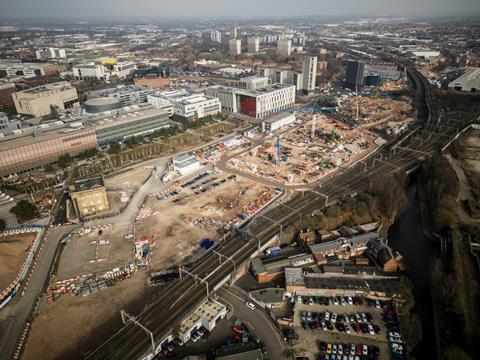Infrastructure the star sector but private housing continues to lag
The amount of work being carried out rose in the first three months of the year, according to the latest Royal Institution of Chartered Surveyors quarterly report.
The survey said workloads stood at a net balance of +3% compared with -1% in the final quarter of 2022.
Private commercial and private industrial workloads improved slightly, to +2% and +3% respectively, as did public housing workloads to +7%.

But private housing remained in the doldrums with the net balance now standing at -9%, an improvement from the -13% recorded in the last three months of 2022.
Infrastructure had the most positive workload reading, sitting at a +23% net balance across the UK, with energy work posting a net balance reading of +46% this quarter, compared to +45% posted in the last quarter.
Concerns about labour were also flagged in the report with worries ranging from the number of quantity surveyors entering the industry to concerns about getting hold of general trades for sites.
And the proportion of respondents reporting financial constraints as a challenge rose for the fifth consecutive quarter, reaching 64%. Materials shortages also continued to hold back building projects, although the proportion reporting shortages as a key constraint, +56%, reduced for the fourth successive quarter.
RICS chief economist Simon Rubinsohn said: “The negative mood around development has eased somewhat in recent months with the workload trend stabilising away from infrastructure where the trend remains more positive. Unsurprisingly, credit conditions remain restrictive for now but there is a sense that they could ease as the year wears on.”



























No comments yet